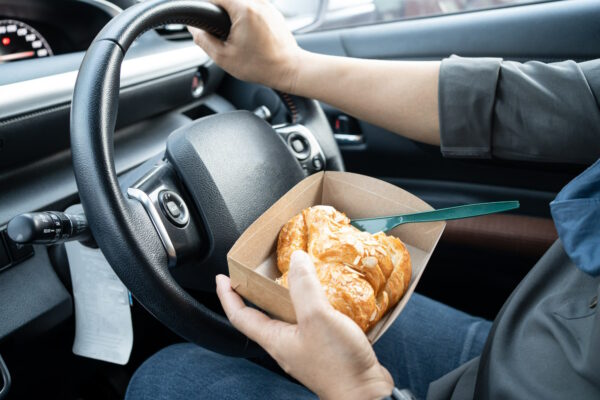Bad fuel in the vehicle means poor performance from the vehicle, and the same applies with a human. Food is fuel. Too much bad fuel for too long and the parts begin to stop working.
It can be a vicious cycle: you put on weight, and that makes it more difficult to sleep, so you snack on chocolate and energy drinks to keep you awake, but they make you put on more weight, and you develop sleep apnoea and eventually you have serious health issues like type 2 diabetes.
Food and drink also affects:
- Vision
- Reaction times
- Distractions (aches and pains, thirst, eating and drinking while driving)
- Mental alertness
All of these have a direct impact on your ability to drive. If you want to perform better, then putting the right fuel into your body is an excellent start.
But how can you filter out the noise around what is good vs evil, and how to do you cope with life on the road if you are a professional lorry driver or travelling salesperson?
Let’s keep it simple: if you replaced all the liquid you are currently drinking with water, it’s likely you would lose several pounds, if not a stone or two. The killer in the drink is sugar as it causes you to put on weight. Energy drinks are loaded with sugar. Soft drinks are as bad. Coffee is likely to have some sugar in it. Fruit juice is worse than some soft drinks (don’t think that just because it’s fruit that it is any better – the juice without all the fibre just gets treated like sugar in your body). Water is cheap (free, mostly), good for you, and has zero calories, which means you can get your calories from foods that burn slowly, keeping you feeling full for longer.
Regarding food, if you can cut back on half the sugar and replace it with high quality protein and vegetables you are more likely to:
- Lose weight
- Save money (chocolate bars are expensive per gram)
- Have better dental hygiene
- Have more energy
- Be less susceptible to illness.
A study found that having a neck circumference of more than 42cm means a person is susceptible to sleep apnoea which causes poor quality sleep. Being tired causes snacking, especially sugary snacks.
If you can read food labels, you can understand what you are putting into your body. The order of ingredients is most to least. Anything ending in -ose is sugar (glucose, fructose, dextrose, etc). Less processed food is much better, particularly if it’s high in fibre.
If budget is an issue for you, making your own food will save you money rather than buying it out, plus you know what’s in it if you have made it. It also means that if you are on the road driving a lorry, you don’t have to stop at a transport cafe and queue and pay a horrendous amount for greasy, salty, non-nutritious food.
Your action plan, if you are serious about improving your diet on the road:
- Take this online diet course
- Search for recipes suitable for drivers

